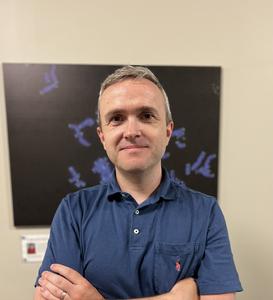Nursing is a demanding yet incredibly rewarding profession that requires a unique blend of skills and qualities. Successful nurses must possess more than just medical knowledge; they must embody characteristics that enable them to provide exceptional care, navigate complex situations, and foster strong relationships with patients and colleagues.
Understanding these essential qualities can help aspiring nurses and those currently in the field strive for excellence. This article will explore the key attributes that define a successful nurse, highlighting the traits that contribute to their ability to deliver high-quality healthcare and compassionate support.
1. Strong Communication Skills
Effective communication is a crucial quality for a successful nurse. Nurses must be able to convey information clearly and accurately to patients, families, and other healthcare professionals. This involves both verbal and non-verbal communication, as well as the ability to adapt messages for different audiences.
Clear communication is essential for ensuring that patients understand their diagnoses, treatment plans, and medication instructions. Miscommunication can lead to confusion, non-compliance, and even medical errors, so it is vital for nurses to articulate information in a way that is easy to comprehend. This might include using layman’s terms, providing written instructions, or demonstrating procedures.
In addition to patient communication, nurses must collaborate effectively with other healthcare team members. This requires active listening, assertiveness, and the ability to provide and receive constructive feedback. Strong communication skills also involve being able to navigate difficult conversations, such as discussing prognosis or delivering bad news, with sensitivity and professionalism.
"Strong communication is a key trait in nursing, where clear information exchange can impact patient outcomes. Applying
effective negotiating tactics like active listening and tailored messaging can greatly enhance a nurse’s ability to communicate complex information compassionately and accurately." - the founder of Shapiro Negotiations Institute shares.
For nurses looking to enhance their communication skills, pursuing advanced education can be beneficial. An
online MSN nursing degree, for example, can provide specialized training in communication strategies and leadership, further preparing nurses for the complexities of the healthcare environment.
(more…)








 Elena Stains
Medical Student
Department of Medical Education
Geisinger Commonwealth School of Medicine
Scranton, PA
MedicalResearch.com: What is the background for this study?
Response: Opioid use has been an increasing problem since the early 2000s in the United States (US) with a surge around 2010. Twenty-five percent of those having abused pain relievers in 2013 and 2014 got those drugs from physicians1. Physicians are particularly well-known for fueling the opioid crisis in Florida in the 2000s. Of the United States’ top 100 opioid prescribing physicians in 2010, an astounding 98 were prescribing in Florida2. Florida taking the main stage of the opioid crisis can be attributed to several factors, including ability of physicians to dispense opioids directly from their offices to patients (i.e. without pharmacists) and the presence of many infamous “pill mills” in the state3–6.
The researchers at Geisinger Commonwealth School of Medicine aimed to analyze the amount of hydrocodone (including brand names of Vicodin and Lortab) and oxycodone (OxyContin and Percocet) distributed in Florida from 2006 to 2021, paying close attention to the peak year of the opioid crisis, 2010. The team used the Washington Post and the US Drug Enforcement Administration’s Automation of Reports and Consolidated Orders System (ARCOS) databases to compile this compelling information.
Elena Stains
Medical Student
Department of Medical Education
Geisinger Commonwealth School of Medicine
Scranton, PA
MedicalResearch.com: What is the background for this study?
Response: Opioid use has been an increasing problem since the early 2000s in the United States (US) with a surge around 2010. Twenty-five percent of those having abused pain relievers in 2013 and 2014 got those drugs from physicians1. Physicians are particularly well-known for fueling the opioid crisis in Florida in the 2000s. Of the United States’ top 100 opioid prescribing physicians in 2010, an astounding 98 were prescribing in Florida2. Florida taking the main stage of the opioid crisis can be attributed to several factors, including ability of physicians to dispense opioids directly from their offices to patients (i.e. without pharmacists) and the presence of many infamous “pill mills” in the state3–6.
The researchers at Geisinger Commonwealth School of Medicine aimed to analyze the amount of hydrocodone (including brand names of Vicodin and Lortab) and oxycodone (OxyContin and Percocet) distributed in Florida from 2006 to 2021, paying close attention to the peak year of the opioid crisis, 2010. The team used the Washington Post and the US Drug Enforcement Administration’s Automation of Reports and Consolidated Orders System (ARCOS) databases to compile this compelling information.












 Remember those hot summer days when all we wanted was to come home from school and ride a bike around the neighborhood? Is this a familiar scenario for you? If yes, you've come to the right (digital) place because we discuss the benefits of cycling for all generations.
Remember those hot summer days when all we wanted was to come home from school and ride a bike around the neighborhood? Is this a familiar scenario for you? If yes, you've come to the right (digital) place because we discuss the benefits of cycling for all generations.

 According to the Daily Nurse, nursing is
According to the Daily Nurse, nursing is 







